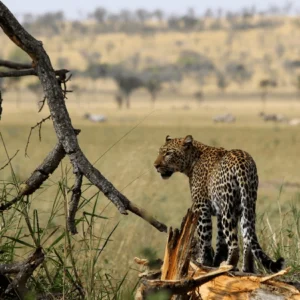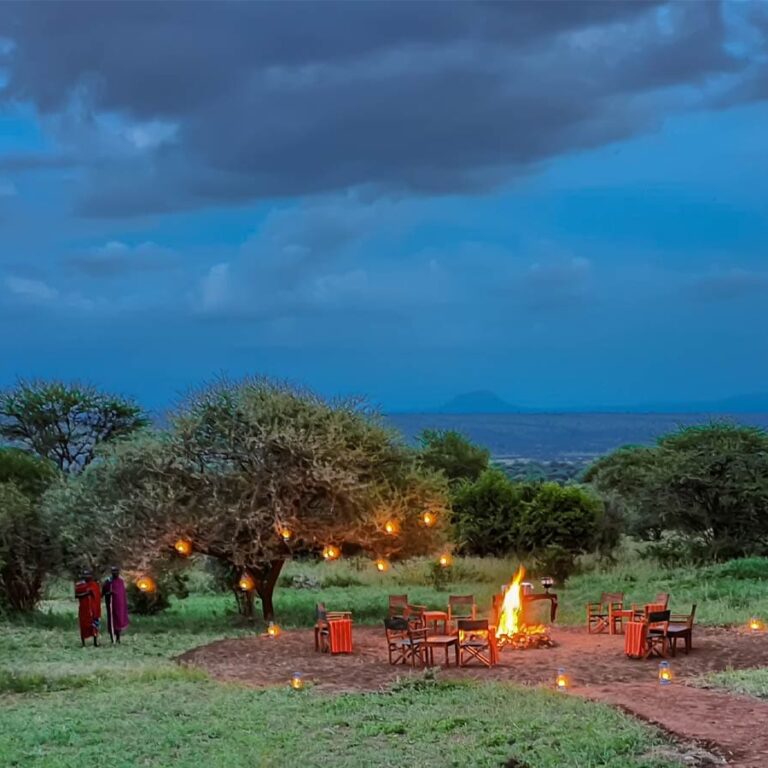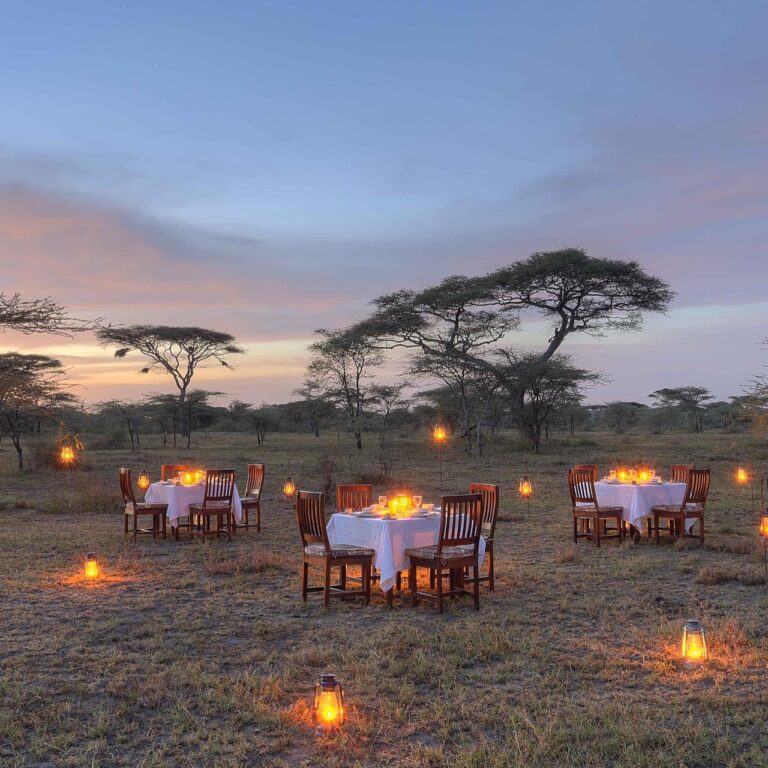Embarking on an African safari is a dream for many adventure seekers, but as we set out to explore the beauty of the continent, it’s crucial to choose an experience that respects wildlife and supports local communities. Here’s a guide on how to ensure your safari adventure is ethical and responsible. Africa. The very name evokes images of wild savannahs, majestic elephants, and the thrill of discovery. An African safari is, for many, the ultimate travel dream. However, as the popularity of these adventures soars, a crucial question arises: how can we ensure our safari experience is not only unforgettable but also deeply ethical and leaves a positive footprint?
An ethical safari is about more than just seeing the “Big Five”; it’s about responsible tourism that benefits wildlife, respects local communities, and preserves the incredible ecosystems for future generations. An ethical African safari prioritizes animal welfare, community well-being, and environmental sustainability. This means choosing safari operators that minimize their impact on wildlife, support local communities, and actively participate in conservation efforts. Look for companies that are transparent about their practices, invest in local communities, and avoid exploitative “animal encounters”. Here’s a comprehensive guide on how to choose an ethical African safari experience:
1. Choose Sustainable Safari Accommodation
Your Ethical African Safari Experience begins with where you stay. Opt for eco-friendly lodges and camps that prioritize sustainability. Look for establishments that utilize renewable energy, practice water conservation, and have a minimal environmental footprint. Research accommodations that source their food locally to support the community and reduce transportation carbon emissions. Your choice of where to lay your head significantly impacts the environment and local communities.
Eco-Friendly Practices: Look for lodges and camps that actively implement sustainable practices. This includes using renewable energy sources (like solar power), efficient water eanagement systems (rainwater harvesting, greywater recycling), and robust waste management programs (recycling, composting). Many truly sustainable properties will proudly display their efforts on their websites.
Minimal Footprint Design: Sustainable accommodations are often designed to blend harmoniously with the natural environment, using local materials and minimizing disruption to the landscape during construction. Smaller, boutique camps often find it easier to implement and maintain these practices than large, sprawling resorts.
Local Employment and Sourcing: Prioritize lodges that employ staff from nearby communities, offer fair wages, and invest in their training and development. Additionally, inquire if they source food and supplies locally, supporting the regional economy and reducing transportation emissions.
Certifications: Look for eco-certifications from recognized bodies like Green Globe, Fair Trade Tourism, or Responsible Tourism Tanzania (RTTZ). These certifications indicate that the property has met specific sustainability criteria.
2. Choose an Ethical African Safari Company
Selecting a reputable and ethical safari company is paramount. Look for operators that are transparent about their conservation efforts and the communities they support. Check for affiliations with recognized conservation organizations and read reviews about their policies and practices. An ethical company will prioritize animal welfare and conservation initiatives over profit. The safari operator is the linchpin of your ethical journey. Their values and practices will define your impact.
Commitment to Responsible Tourism: A truly ethical company will have a clear mission statement and detailed policies on responsible tourism, wildlife conservation, and community engagement published on their website. Several safari companies prioritize ethical and sustainable tourism, focusing on conservation, community empowerment, and responsible practices. Foot Slopes Tours and Safaris, Ethical African safari companies, among others. These companies often partner with local communities, support conservation efforts, and strive to minimize their environmental impact.
Staff Welfare: Inquire about their employment practices. Do they pay fair wages, offer training, and provide good working conditions for their guides, drivers, and other staff? This is particularly important for porters on Kilimanjaro climbs; support operators affiliated with organizations like the Kilimanjaro Porters Assistance Project (KPAP) in Tanzania, which ensures fair treatment.
Conservation Contributions: Ask how they contribute to conservation efforts. Do they directly donate to anti-poaching units, wildlife research, or habitat protection? Do they partner with conservancies that prioritize community-led conservation?
Certifications and Affiliations: Similar to accommodations, look for safari companies with certifications like Travelife, or affiliations with reputable tourism associations such as the Tanzania Association of Tour Operators (TATO) or the African Travel and Tourism Association (ATTA), which often promote responsible practices among their members.
3. Join a Conservation-Based Safari
Consider joining a safari that focuses on conservation efforts. These safaris often partner with wildlife protection organizations or conduct scientifically valuable research. By participating, you contribute to preserving habitats and protecting endangered species. Plus, you’ll get to learn about the intricate relationships between ecosystems and the wildlife within them. Take your ethical commitment a step further by choosing a safari specifically designed around conservation.
Active Involvement: Some safaris offer opportunities for guests to participate in or learn about active conservation work, such as rhino monitoring, wildlife tagging, or anti-poaching patrols (under strict supervision, of course).
Dedicated Focus: These safaris are often led by experts or researchers who provide in-depth knowledge about conservation challenges and successes. They ensure that a portion of your tour cost directly funds specific conservation projects.
Conservancy Stays: Consider staying in private conservancies adjacent to national parks. These areas are often managed by local communities in partnership with conservation organizations, allowing for a direct economic benefit to the people coexisting with wildlife. They often offer more exclusive game viewing and off-road driving opportunities (where permitted) compared to national parks.
4. Keep Your Distance from Wildlife
When you’re out on safari, you’ll surely want to get close to the animals. However, maintaining a respectful distance is crucial. Adhere to guidelines provided by your safari guide and avoid any actions that may disturb the animals. This commitment helps preserve their natural behaviors and habitats, ensuring a more authentic wildlife experience. Respecting wildlife means giving them space to behave naturally.
Maintain Safe Distances: Ethical safari guides adhere to strict guidelines on how close vehicles can get to animals. This prevents stressing the animals, altering their natural behavior, or habituating them to human presence. Always use binoculars and zoom lenses for close-up views, rather than urging your guide to get too close.
No Interference: Never try to feed, touch, or interact with wild animals. This can be dangerous for both you and the animal, and it can lead to animals losing their natural fear of humans, which often has negative consequences for their long-term survival.
Quiet Observation: Keep noise levels low in the presence of wildlife. Loud talking, sudden movements, or flashing lights (especially at night) can disturb animals.
5. Limit Time Spent on Safari (Quality Over Quantity)
While it may be tempting to extend your safari runs, consider limiting the time spent in wildlife areas. Over-tourism can disrupt ecosystems, so balancing your adventures helps reduce pressure on these environments. Consider spending some time in local communities, immersing yourself in their culture and supporting their economies. While it might seem counterintuitive, sometimes less is more when it comes to impact.
Focused Itinerary: Instead of rushing through numerous parks, consider spending more time in fewer locations. This reduces travel time (and associated carbon emissions) and allows for a deeper appreciation of the chosen ecosystem.
Minimize Vehicle Impact: Prolonged game drives, especially with multiple vehicles converging on a sighting, can stress animals and contribute to habitat degradation through off-roading (where permitted and regulated). Ethical operators will manage vehicle numbers and ensure respectful viewing times at sightings.
Consider Walking Safaris: In areas where it’s safe and permitted, a guided walking safari offers a more intimate and lower-impact way to experience the bush, reducing reliance on vehicles.
6. Don’t Buy Animal Products
Steer clear of any souvenirs or products made from animals. By purchasing items like ivory or animal skins, you contribute to illegal wildlife trade and encourage harm to wildlife populations. Instead, seek out authentic crafts made by local artisans, ensuring your purchases are ethical and sustainable. Be a conscious consumer and avoid contributing to illegal wildlife trade.
Avoid Prohibited Items: Absolutely refrain from buying anything made from endangered species, such as ivory, rhino horn, pangolin scales, or certain animal skins. This supports illegal poaching and wildlife trafficking.
Support Local Artisans: Instead, purchase authentic, locally made crafts that benefit the community directly. Look for items like traditional beaded jewelry, woven baskets, local fabrics, wood carvings made from sustainable timber, or coffee and spices. Ask about the origin of materials to ensure they are not derived from illegal or unsustainable sources.
7. Leave No Trace
Embrace the Leave No Trace principles. Respect the environment by not littering, avoiding damaging plants, and leaving wildlife habitats undisturbed. This simple commitment goes a long way in preserving the beauty of the landscapes that you travel through. Adopt the principles of leaving no trace to minimize your environmental impact.
Pack It In, Pack It Out: Ensure all your trash, including food wrappers, plastic bottles, and even biodegradable items like fruit peels, is properly disposed of or packed out. Never leave anything behind in the wilderness.
Stay on Designated Paths: When on game drives or walking safaris, remain on designated tracks and trails. Driving or walking off-road unnecessarily can damage fragile ecosystems and disturb wildlife.
Respect the Environment: Do not pick plants, disturb natural formations, or remove any “souvenirs” from the wild. Leave nature as you found it for others to enjoy.
8. Offset Your Flights
Traveling to Africa can have a significant carbon footprint due to the emissions from flights best way to plan an ethical safari. Consider measuring your travel impact and purchasing carbon offsets to mitigate the effects of your journey. Many organizations can help guide you in finding legitimate offset programs. Air travel is a significant contributor to your carbon footprint.
Carbon Offsetting: While not a complete solution, purchasing carbon offsets for your international flights can mitigate your environmental impact. Invest in reputable offsetting programs that support projects in Africa, such as reforestation, renewable energy initiatives, or community development projects that reduce reliance on unsustainable practices. Research organizations carefully to ensure your contribution genuinely leads to emission reductions.
Fly Direct: Where possible, choose direct flights to reduce fuel consumption from multiple take-offs and landings.
9. Give Back to Charity or Volunteer (Thoughtfully)
When you travel, consider giving back. Ethical safari holidays, could involve making a donation to a local conservation charity or participating in volunteer opportunities within the communities you visit. Engaging in these activities creates positive impacts and connections with the local population and environment. Beyond your safari booking, consider direct ways to support African communities and conservation.
Donate to Reputable Local Charities: Research and donate to local non-profit organizations that are genuinely making a difference in conservation or community development, advice for an ethical and sustainable safari in Tanzania. Look for transparency in their financial reporting and evidence of their impact. Your safari operator might recommend trusted local initiatives. To choose an ethical African safari, prioritize minimal wildlife interaction, support local communities, and choose accommodations with eco-friendly practices. Look for companies with transparent conservation efforts and licensed, trained guides. Avoid experiences that involve animal handling, feeding, or walking with animals, and opt for activities that promote wildlife’s natural behavior and habitat preservation.
Ethical Volunteering: If considering volunteering, choose programs carefully. Ensure they are genuinely beneficial to the community or conservation efforts, avoid “voluntourism” that displaces local labor, and have clear, measurable objectives.
10. Choose Community-Inclusive Lodges and Conservancies
Select lodges that actively involve local communities in their operations, things to consider if you want to plan an ethical safari trip. These lodges often share profits with community projects and provide employment, ensuring that tourism directly benefits the local people. This partnership fosters cultural exchange and mutual respect. The future of African wildlife often rests on the buy-in of local communities.
Shared Benefits: Support lodges and conservancies that directly involve local people in the management and financial benefits of tourism. Many conservancies lease land from local communities (like the Maasai or Samburu), ensuring that the income from tourism provides a tangible incentive for them to protect wildlife and their habitats.
Community-Led Initiatives: These types of partnerships often lead to better wildlife protection, as communities become guardians of the land and actively participate in anti-poaching efforts. They also offer more authentic cultural experiences, as you are guests in community-owned lands.
An ethical African safari is a profound way to experience the continent’s wonders while actively contributing to its preservation. By making conscious choices, you become a part of the solution, ensuring that the magic of Africa endures for generations to come.
By thoughtfully considering each of these aspects, you can enjoy a remarkable safari experience while being responsible and ethical. In doing so, you help protect the stunning landscapes, wildlife, and communities that make Africa so unique and worth preserving. Your adventure can be a force for good, paving the way for future generations to experience the wonder of the African wilderness. Top Ethical African Safari Experience destinations include Serengeti, Tarangire, Lake Manyara, Arusha National Park, Mount Kilimanjaro, Lake Eyasi, Lake Natron, Mkomazi, and Zanzibar beach holiday.
Ethical Animal Encounters on an African Safari prioritize the well-being of wildlife and their natural habitats. Key practices include observing animals from a safe distance, avoiding activities that could cause stress or harm, supporting conservation efforts, and choosing responsible tour operators. Examples include gorilla trekking in Rwanda, visiting elephant orphanages like the David Sheldrick Wildlife Trust, and experiencing giraffe encounters at places like Giraffe Manor.
Top 10 Tips for Booking Your African Safari
How to Book a Sustainable African Safari: Ultimate Guide
How to Climb Kilimanjaro Sustainably and Responsibly
Ethical African Safari Experience
Step by Step to Choosing the Best African Safari Companies








